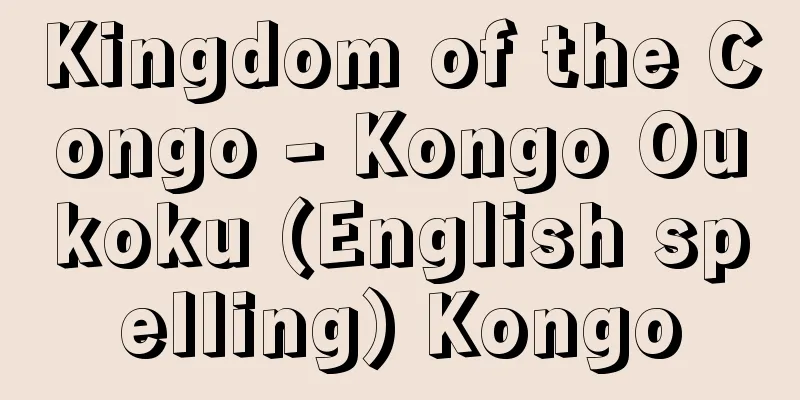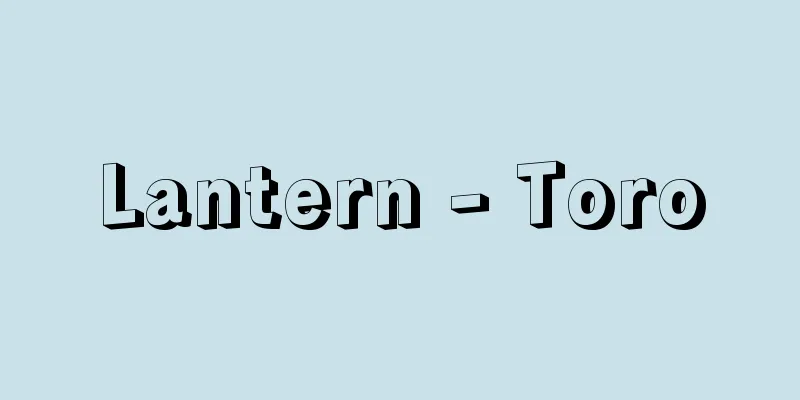Kingdom of the Congo - Kongo Oukoku (English spelling) Kongo

|
A kingdom located in the west of Central Africa, south of the Congo River. It is said to have been founded by Lukeni Rua Nimi around 1390. Its capital was Mbanzakongo. The Portuguese arrived in 1483. In 1491, King Nzinga a Nkwa and Prince Mvemba a Nzinga converted to Catholicism and were baptized João I and Afonso I, respectively. Afonso I, who ascended to the throne around 1509, came into conflict with Portuguese merchants over Atlantic trade, including the slave trade. After Afonso I's death in 1542, a fierce battle for succession unfolded, and in 1568, an armed group, the Jaga, took advantage of this confusion and invaded from the east and seized the kingdom. Alvaro I (Nimi a Lukeni, reigned 1568-87) was finally able to settle the situation with the support of the Portuguese army. Garcia II (Nkanga a Lukeni, reigned 1641-61) also allied with the Dutch to oppose Portugal. The kingdom and Portugal were at odds over sovereignty and there were repeated small-scale clashes, which escalated into the Battle of Mbwila (Battle of Uranga) on October 29, 1665, in which Antonio I (Mbita a Nkanga) was killed. After this, the kingdom nominally continued to exist, but it did not function as a unified nation, and civil war continued until the end of the 17th century. Portugal intervened in the fight for succession and supported Pedro V (Agua Rosada Lelo, reigned 1859-91). In 1913-14, Alvaro Buda rebelled against Portuguese rule. The rebellion was suppressed, which led to the collapse of the kingdom and its annexation to Portuguese Angola. Source: Encyclopaedia Britannica Concise Encyclopedia About Encyclopaedia Britannica Concise Encyclopedia Information |
|
中央アフリカ西部,コンゴ川の南方に存在した王国。1390年頃にルケニ・ルア・ニミが樹立したとされる。首都はムバンザコンゴ。1483年にポルトガル人が到来。1491年,国王ンジンガ・ア・ンクワと王子ムベンバ・ア・ンジンガはカトリックに改宗し,それぞれジョアン1世,アフォンソ1世の洗礼名を受けた。1509年頃に即位したアフォンソ1世は,奴隷貿易などの大西洋交易をめぐってポルトガル商人と対立した。1542年にアフォンソ1世が没したのち,激しい後継者争いが繰り広げられ,この混乱に乗じて 1568年に武装集団ジャガ族が東方から侵攻し王国を制圧した。アルバロ1世(ニミ・ア・ルケニ。在位 1568~87)は,ポルトガル軍の支援を得てようやく事態を収拾した。またガルシア2世(ンカンガ・ア・ルケニ。在位 1641~61)はオランダと手を組み,ポルトガルに対抗した。王国とポルトガルは統治権をめぐって対立し,小規模な衝突を繰り返したが,1665年10月29日にムブウィラの戦い(ウランガの戦い)に発展し,アントニオ1世(ンビタ・ア・ンカンガ)が殺害された。これ以降,王国は名目上は存続したが,統一国家としての機能は果たさず,17世紀末まで内戦が続いた。ポルトガルは後継者争いに介入し,ペドロ5世(アグア・ロサダ・レロ。在位 1859~91)を擁立。1913~14年,ポルトガル人の統治に対してアルバロ・ブタが反乱を起こした。反乱は鎮圧され,これを引き金に王国は崩壊,ポルトガル領アンゴラに併合された。
出典 ブリタニカ国際大百科事典 小項目事典ブリタニカ国際大百科事典 小項目事典について 情報 |
<<: Republic of the Congo - République du Congo
>>: Combination vaccine - Vajra vaccine
Recommend
Social development
It refers to the process and form of change when a...
Schott, O. (English spelling) SchottO
…In 1873, he developed a theory of imaging based ...
《Mad Cloud Sleeve》
…It was first performed in November 1784 (Tenmei ...
Gas circuit breaker
→ Circuit breaker Source: Shogakukan Encyclopedia...
Vivien, R. (English spelling) VivienR
… In 1886, Anatole Baju founded Decadent, the jou...
Urabe - Urabe
…The Izu Urabe's headquarters was on the isla...
The Sacred Wisdom Sutra - Shomangyo
A Mahayana Buddhist scripture. The story is that Q...
Bolān Pass (English spelling)
This pass is located in the saddle of the Brahi Mo...
Asaka Canal - Asaka Canal
This canal draws water from Lake Inawashiro in cen...
Letter of Inquiry - Chuushinjo
〘noun〙① A form of ancient document from the Middle...
Evening newspaper
A newspaper published in the evening. Most modern...
Tochigi Prefecture
A prefecture in the northern part of the Kanto reg...
Tadataka Aoyama
1734-1816 A daimyo in the mid-Edo period. Born on...
Unqualified temperament
...So in the 16th century, the meantone temperame...
theorbo
...The Baroque period also saw the appearance of ...









